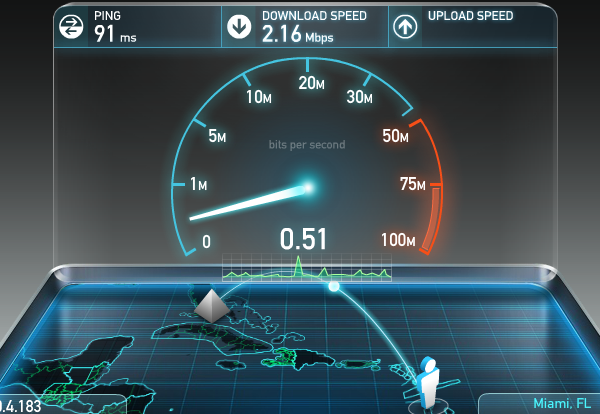AN internet service provider, Telecontract (Telco), has been ordered by the Supreme Court to pay its client $5 000 after it was dragged to court by a Harare transport company following a wrangle over installation of internet services with slow speed.
In 2012, J&J Transport engaged Telco to provide fibre internet services with speeds of five megabytes per second at its Msasa and Glen Lorne offices, both in Harare.
However, when the internet was installed, the service speed of five megabytes per second was not achieved and J&J Transport complained.
Telco in return said it had made it clear to the company that it was providing a speed of five megabits per second not five megabytes, forcing J&J Transport to cancel the agreement before approaching the Magistrates’ Court to recover the $5 000 deposit it had made.
In a ruling, the magistrate said there was confusion between the two parties over the terms “megabytes” and “megabits” and as such there was no valid contract between them before ordering Telco to payback J&J Transport its deposit.
However, Telco appealed at the High Court against the magistrate’s ruling, but the High Court dismissed the appeal.
Angered by the High Court’s decision, Telco made another appeal at the Supreme Court where the matter was heard last month before Justice Antonia Guvava, Bharat Patel and Tendai Uchena.
However, in their judgment, the judges said it was clear that J&J Transport and Telco “were miles apart as to what they thought they had agreed on”.
“The respondent (J&J Transport) thought it had agreed to acquire an internet speed of five megabytes per second. The appellant (Telco) noted this but chose to keep quiet, writing it off as a typographic mistake when it was clearly not.
“The appellant did not bother to clarify to the respondent the terminology used. The result was that both parties proceeded with a contract on diametrically opposite terms from what the other was thinking. This resulted in the confusion between the parties which is apparent on the record. There was, therefore, no meeting of the minds and a contract could not have come into existence,” the judges noted in their ruling.
The judges ruled that there was no consensus between the two parties and upheld the magistrate’s decision that Telco should refund J&J Transport its deposit.
“The court a quo therefore correctly upheld the decision of the Magistrates’ Court. Its decision is unassailable. In the result, the appeal is dismissed with costs,” the judges ruled.-AllAfrica






